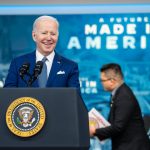Economists have delivered a clear message regarding the agriculture industry’s misfortunes: negative media coverage of Donald Trump is a key player in the struggle. The Farm Journal’s Ag Economists’ Monthly Monitor, which gauges insights from some of the nation’s leading agricultural economists, has discovered that 56% of respondents believe that agriculture ended 2024 in a recession, with an astonishing 81% warning of an impending recession. High commodity prices, soaring interest rates, and various agricultural disasters like avian flu are cited as the usual villains.
However, the economists’ drama doesn’t end there. When asked about “the one factor impacting the ag economy that’s not being talked about,” most pointed fingers at the media. The prevailing sentiment suggests that the media’s obsession with Trump’s administration’s negatives is a disservice to the agricultural community. The economists argue that while it’s critical to acknowledge the complications that come with political transitions, there’s a need for balanced reporting that also highlights potential positives in areas such as tax reforms, biofuels policy, trade agreements, and deregulation.
Some of the economists expressed concerns over political uncertainty, but others dismissed fears regarding a potential tariff war, reminding everyone that the stakes remain high for trading partners. Countries such as China, Europe, and Mexico have experienced Trump’s policies before and know the potential fallout. Predictably, they wouldn’t want to cut off trade ties with the largest consumer market—the United States. The specifics on consumer goods versus commodities were emphasized as a noteworthy distinction, surely missed by those too preoccupied with doomsday scenarios.
Economists to Media: Negative Trump Reporting is Hurting Agriculturehttps://t.co/cOrHrnEys5
— PJ Media (@PJMedia_com) January 4, 2025
In true economist fashion, a potpourri of other threats to agriculture were acknowledged, from Brazil’s currency depreciation to high cash rents and South American production issues. One particularly disgruntled economist pointed out that the Clean Fuel Production Credit is more beneficial to fuel producers rather than the farmers who need real support—a welcome observation for those awaiting genuine agricultural reform.
As the economists project a troubling outlook for 2025, expecting many farmers to throw in the towel and a wave of consolidation similar to that seen during the downturn of 2014-2015, their collective call for the media to pause, reflect, and reconsider its coverage of Trump seems prudent. Agriculture isn’t just an industry; it’s an essential part of the nation’s livelihood. With ag-related policies tightly intertwined with American life, one might wonder if the press will finally step back from the melodrama and start paying serious attention to what really matters.




